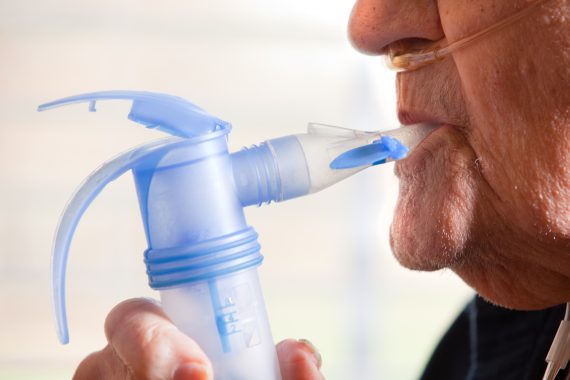ICBs should commission spirometry services in primary care and not just rely on community diagnostic centres to provide access, NHS England has said.
Spirometry could be provided by an individual GP surgery, or by groups of GPs, or by a service in a community setting, the new commissioning guidance states.
ICBs and primary care networks should work together to provision locally for spirometry serves their population, by looking at factors such as waiting lists.
And it should be provided in the community through a range of models to reduce unnecessary referrals into secondary care.
GPs and respiratory experts have long warned about patchy provision of testing for lung conditions.
Spirometry services were halted at the start of the Covid-19 pandemic for safety reasons and restarting them has proved challenging in many areas, NHS England said in the set of recommendations.
A report from Asthma+Lung UK in July called on the Government to provide long-term funding for GP practices to offer testing for lung conditions, including spirometry and fractional exhaled nitric oxide (FeNO).
It has been estimated based on a survey of 12,000 people that one in five patients with a chronic lung condition had to wait over a year for an accurate diagnosis.
In May, an Norfolk LMC warned that hospitals were regularly rejecting GP referrals for spirometry.
The latest NHS England guidance for commissioners stressed that even with the additional capacity for quality assured spirometry provided by CDCs, ‘systems still need to commission primary care-based respiratory diagnostic testing’.
Dr Andy Whittamore, a GP and clinical lead at Asthma+Lung UK, welcomed the new commissioning guidelines because there was ongoing concern ‘that spirometry provision is patchy across England with many ICBs still not providing tests at all’.
‘This means that thousands of people are missing out on an accurate and timely diagnosis of COPD every year, which is unacceptable, especially when you consider that lung disease is now the third biggest killer in the UK and a leading cause of winter pressures on the NHS.’
He added the guidance makes it clear that ICBs should commission spirometry to meet demand in their localities which would hopefully clear up some of the misconceptions around CDCs.
‘Previously, CDCs have been viewed as a silver bullet when it comes to spirometry provision, but this misunderstanding has resulted in some ICBs failing to invest properly in locally run spirometry services,’ he said.
‘It is important to stress that CDCs were always intended to boostspirometry provision not to replaceit, because they simply do not have the capacity to meet overall demand.’













Yes, we must protect secondary care at all costs but not at the costs of paying GPs properly…..
Here’s a thought: Maybe offer enough to make a viable service or (shock horror) for the surgery to be able to generate a small surplus and maybe GPs would consider adding some capacity and taking it back. Otherwise, we’re busy enough already thanks.
The scandalous community diagnostic centres which did not materialise and pushed the responsibility to the GP unfunded. No wonder the service did not take off.
About time but 3 years too late. I can’t see any GP surgeries wanting to take back spirometry and it is almost impossible now with the requirements to be able to do it in house.
There’s an underlying narrative here.
By the latter stages of CCGs there were lots of community-based clinics, usually run by GpWSIs and based in practices (no need for PCNs then).
Under ICBs, where Places are either run by Hospital CEOs or are effectively dominated by Hospital CEOs, gradually these have almost all been closed down.
The money is either recycled into the Hospital income streams where it is impossible to spot, or contributes towards filling the big financial hole caused by the Hospital.
The patients who were previously seen in these community clinics, have been added to the already huge Hospital waiting lists, enabling the Hospitals to say they need even more funding.
Community Diagnostic Centres were always a meaningless political gesture. In most cases it just involved Hospitals moving some services from one building to another. In some cases they remain based in the Hospital itself.
There was no real need for them: most of the tests they were to deliver were already being delivered in general practice under LCS or similar arrangements. The others (ultrasound, X-Rays, MRIs etc) were generally more appropriate to radiology departments. There was a risk that loss of these LCSs would destabilise general practice further. if Hospitals ran CDCs there was also a risk that there would be yet another net transfer of funding from general practice to Hospitals
There was little thought about what scale of delivery CDCs would need: commissioners always forget the enormous scale general practice operates at.
NHS England are very late to understand the consequences of their own decisions, and to understand just how dominated by Hospitals the system now is, to the detriment of the whole system.
but we were told GPs could not do this, so have got rid of our spirometry equipment, and no longer have suitably trained staff.
It is a bit too late now!
But we were told we could not so spirometry, so we got rid of our spirometry equipment, and no longer have the staff trained (and certified trained) to be able to do the service, so it is a bit too late now…
Just watch — ECG will come back soon for half the price.